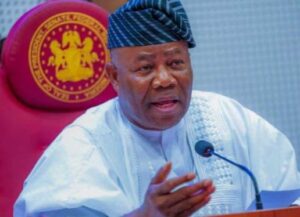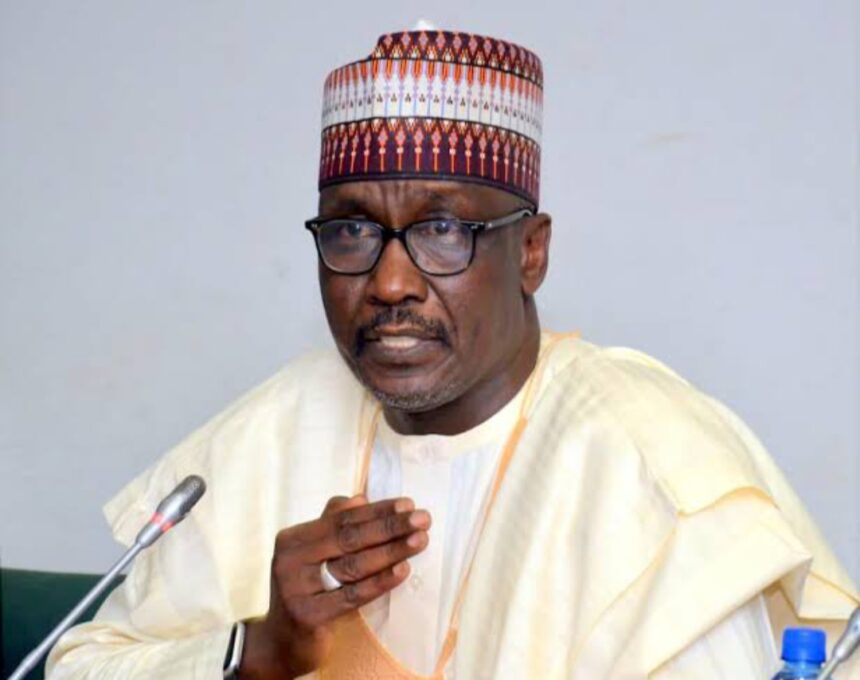– Scratch My Back, I Scratch Yours: How NNPCL Initiated Sudden Recruitment Drive to Woo Lawmakers
– The Struggles of Average Nigerians Amidst Corporate Intrigues
The bustling streets of Lagos and Abuja, normally alive with the hum of engines and the rhythm of daily life, have fallen eerily silent. Fuel stations lie dormant, their pumps dry, while lines of anxious motorists stretch into the horizon. The latest chapter in Nigeria’s ongoing fuel saga unfolds, not as a mere logistical hiccup, but as a tale of intrigue, corruption, and the silent wars waged behind closed doors.
Investigations by TheCapital have uncovered a murky web of deceit and greed, pointing fingers at friends and associates within the Nigerian National Petroleum Corporation Limited (NNPCL). Their abrupt cessation of fuel importation from Malta, in a bid to evade scrutiny, has cast the nation into the throes of yet another fuel crisis. …CONTINUE READING

The Blending Plant Conspiracy
Beneath the shimmering surface of Malta’s azure waters lies a tale of subterfuge. Aliko Dangote, the revered chairman of Dangote Industries Limited, recently stirred the waters with allegations that have sent shockwaves through the NNPCL. Speaking before the House of Representatives on a sombre Monday, Dangote revealed that certain NNPCL personnel and their allies among oil traders and terminals had established a blending plant in Malta.
This facility, though lacking refining capabilities, blends re-refined oil with additives to produce finished lubricant products. It’s a small but significant cog in the machinery of global oil trade, one that can easily slip under the radar—except when scrutinized by an industry titan like Dangote.
Kyari’s Denial
The ripples of Dangote’s accusations reached the highest echelons of NNPCL, prompting a swift response from Mele Kyari, the company’s embattled CEO. “To clarify the allegations regarding the blending plant,” Kyari asserted, “I do not own or operate any business directly or by proxy anywhere in the world, with the exception of a local mini agric venture.”
Kyari’s emphatic denial, however, did little to quell the storm. His promise to sanction any NNPCL employee found guilty rang hollow amidst growing public scepticism. Sources close to Kyari dismissed the allegations as the product of mischief-makers, extolling his leadership as the best NNPCL could hope for. Yet, the shadows of doubt linger, casting a pall over the corporation’s integrity.
A Crisis Unfolds
As the scandal brewed, fuel stations across Lagos, Abuja, and beyond shuttered their operations. The official narrative from NNPCL attributed the scarcity to a “hitch” in the discharge operations of fuel-carrying vessels. Olufemi Soneye, NNPCL’s spokesperson, assured the public that the company was “working round the clock with all stakeholders to resolve the situation.”
But for the average Nigerian, these assurances offered little solace. The lines at fuel stations grew longer, tempers flared, and the spectre of another price hike loomed ominously. Small businesses, already teetering on the edge due to Nigeria’s struggling economy, faced the prospect of closure. Larger enterprises, too, felt the squeeze, their operational costs ballooning as the cost of fuel soared.
The Common Man’s Burden
In the labyrinthine streets of Lagos, the fuel crisis manifests in myriad ways. Taxi drivers, who ply their trade from dawn till dusk, now spend hours queuing for fuel, their daily earnings dwindling. Market traders, reliant on diesel generators to keep their goods fresh, watch in despair as their profits evaporate. The ripples of this crisis extend far and wide, affecting every facet of life.
The economic ramifications are stark. Nigeria’s fragile economy, already buffeted by inflation and unemployment, reels from the impact of this fuel scarcity. Transportation costs spike, triggering a chain reaction that sees the prices of goods and services soar. For the common man, already burdened by economic hardship, this crisis is yet another blow.
The Political Machinations
In the corridors of power, whispers abound. To stave off scrutiny and a potential probe into the alleged malfeasance within NNPCL, Kyari has embarked on a strategic recruitment drive. Sources within the corporation suggest that Kyari intends to curry favour with Nigerian lawmakers and panels of inquiry. By offering employment opportunities to their wards and girlfriends, Kyari hopes to secure their loyalty and silence.
The move, however, has not gone unnoticed. Critics decry it as a blatant attempt to subvert justice and perpetuate a culture of corruption. Yet, within NNPCL, Kyari’s supporters laud his efforts as necessary to protect the corporation from external threats. The battle lines are drawn, with the fate of Nigeria’s oil sector hanging in the balance.
A Call for Transparency
As Nigeria grapples with this latest crisis, the call for transparency grows louder. The allegations leveled by Dangote, and the subsequent denials from Kyari, have laid bare the urgent need for a thorough investigation. The country’s energy security, and by extension its economic stability, hinges on the outcome.
For the millions of Nigerians waiting in line at fuel stations, the machinations of powerful elites seem a world away. Yet, their lives are inextricably linked to the decisions made in boardrooms and government offices. The fuel crisis is a stark reminder of the pervasive impact of corruption and the pressing need for reform.
The Path Forward
In the face of adversity, Nigeria has always shown resilience. The current fuel crisis, though severe, is not insurmountable. With concerted effort and a commitment to transparency, the nation can navigate these turbulent waters. The first step is to hold accountable those responsible for the current predicament, ensuring that the shadows of corruption are dispelled by the light of justice.
As the sun sets over Lagos and Abuja, the hope remains that tomorrow will bring a return to normalcy. For now, the nation waits, watches, and endures, united in its resolve to overcome this latest challenge.
In the end, fuel scarcity is more than just a logistical issue; it is a reflection of deeper systemic problems that need addressing. It is a call to action for all stakeholders to rise above personal interests and work towards a common good, ensuring that the lifeblood of the nation flows freely once more.
One Day, One Trouble As Court Suspends Seplat MD, Other Directors From Office
Follow the TheCapital channel on WhatsApp: https://whatsapp.com/channel/0029Vak8l9A0AgW5dkRkwk29



